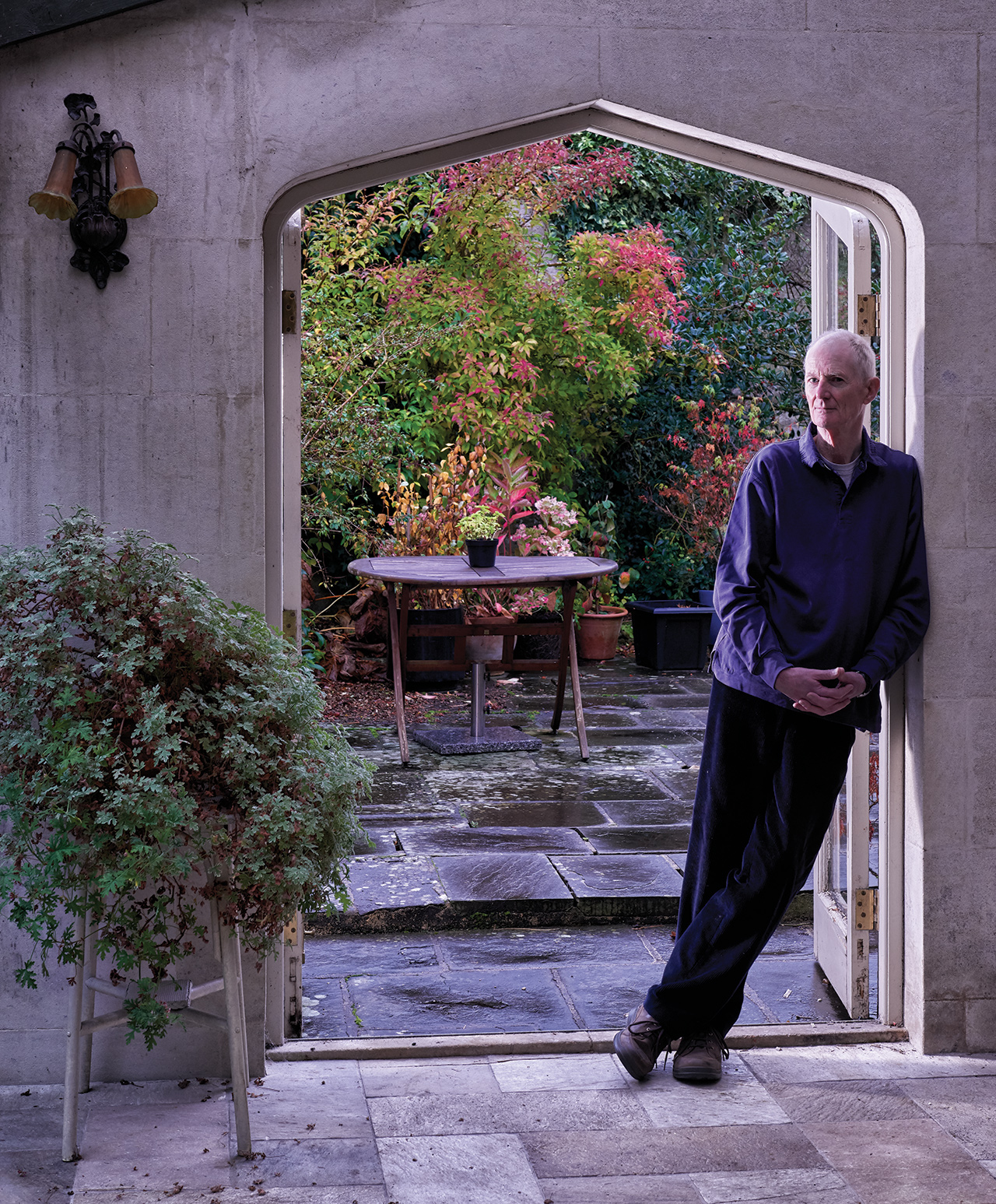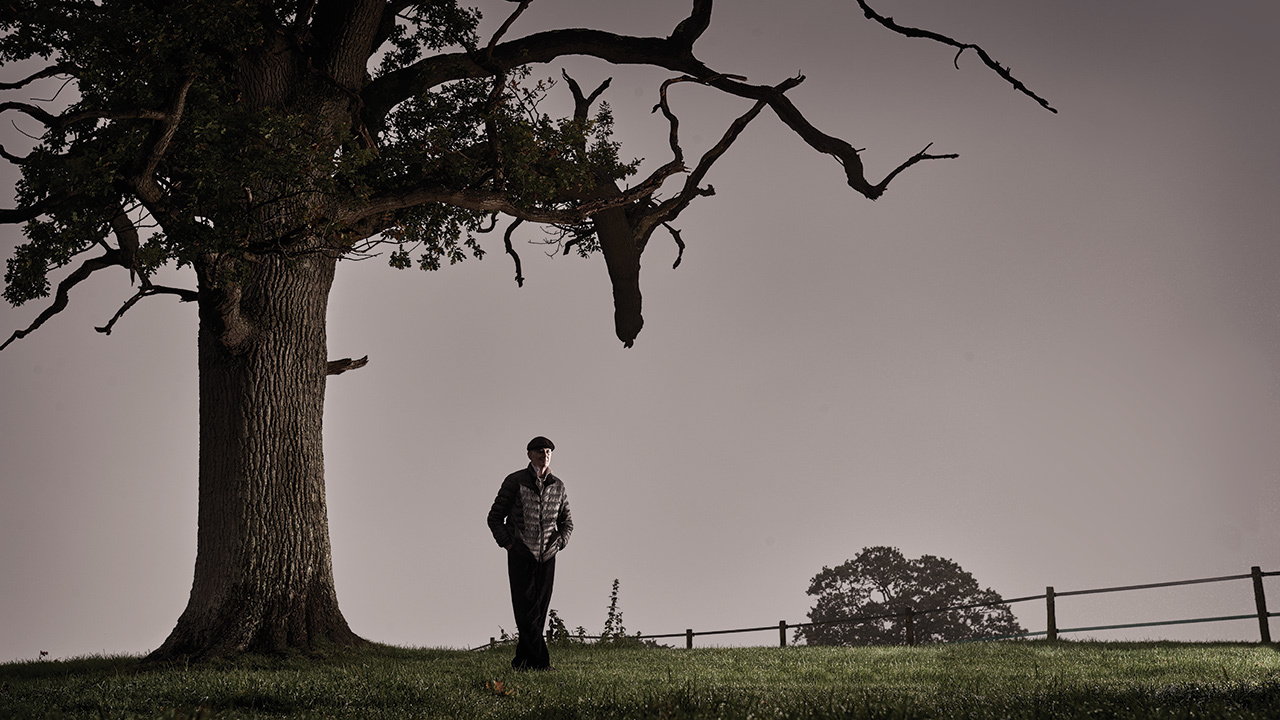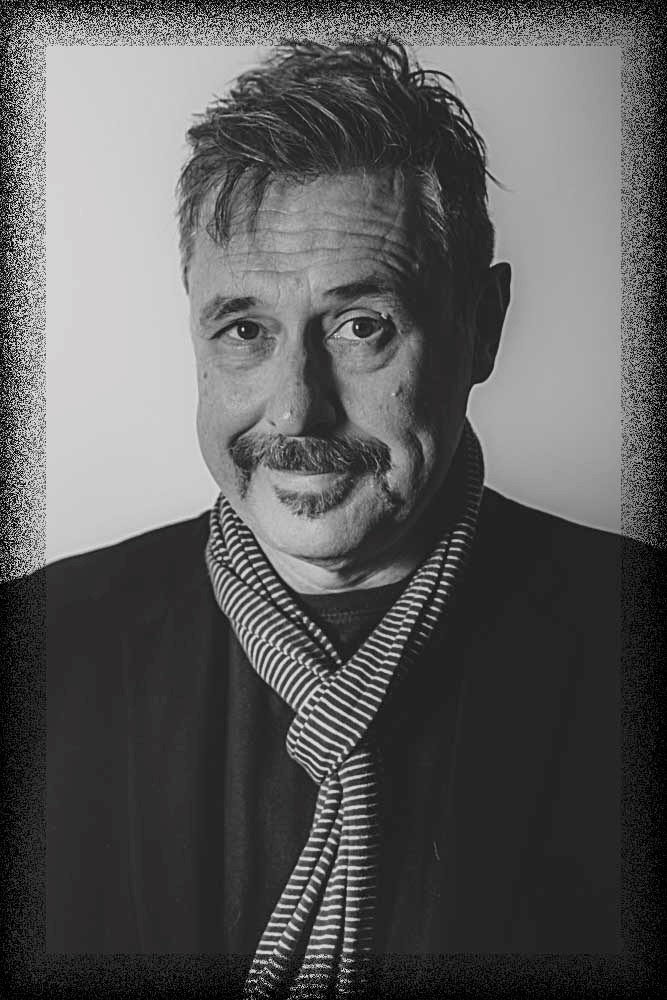Peter Hammill is now very much an elder statesman of progressive rock. Setting up as an independent at the turn of the 80s with his own studios and label, he has continued to amass a challenging, never-less-than-fascinating body of work. For the past 12 years, he has run his solo career alongside that of his old band, Van der Graaf Generator. From The Trees is Hammill’s 35th solo album. If you add in his live albums and work with VdGG, he has released over 60 records since 1969.
It’s impossible to write a Hammill feature without using the phrase ‘cult artist’ – and what a cult he is. At the most recent Progressive Music Awards, there was a veritable queue of fellow performers waiting for an audience with him. “There were lots of people coming up and being very nice to me,” he tells Prog.
There’s always the incredible disconnect between the charming, affable individual and the barking, coruscating artist. Although the days of him slipping into nightshirts and swigging from brandy bottles to deliver his vocals are long behind him, From The Trees maintains his high standards of uneasy listening. “I’m very pleased with how it turned out,” Hammill says.
Here his words are set amid tender, often pretty melodies that evoke cherished songs from his back catalogue, such as Ophelia and If I Could. It’s a more straightforward work compared to the multi-release …all that might have been…, which was built from the bottom up in the studio.
“I decided I wanted to do that old school thing of having completed songs before I went into the recording process,” he says of From The Trees. “I wanted to start with a collection of songs that were built from scratch: I didn’t refer to anything else that I’d done at all. I just had a guitar and a voice, or a piano and voice rather than doing any other superstructure on top of it. It was something I hadn’t done for years.”
On top of that, he road-tested the material, playing six of the album’s 10 songs at his three-night residency at London’s Cafe Oto in March this year. “As I happened to be doing a few shows, I ought to have a go at doing them live. Those I played live did inform the recording.”
Of late, Hammill’s songs have tended to emerge from riffs, or beats, “or, indeed, music concrète”, Hammill adds. “In terms of other albums, I tend to do all the recording, have all the guitars and basses and keyboards and then go back and strip them away to perform solo. As I knew these songs worked already, it was important not to cock them up too much by sticking too much stuff on. In a way, it was slow steps to avoid doing that.”
Did he feel that making From The Trees was more like the late 60s, arriving at the studio with the songs ready to record?
“If you regard time in an elastic sense, From The Trees was similar to that, in not wanting to put too much stuff on, not wanting it to be modern in any way, I suppose. The instrumental palette is pretty restricted. It’s not all-singing, all-dancing or even trying to show off instrumental chops that much. It’s very much a thing of trying to serve the song with support in terms of instrumentation.”
It’s a departure from the myriad layers of his last solo album.
“…all that might have been… was extreme, and I don’t think anybody else has attempted anything like that or probably will ever again,” Hammill says. “It was a hard sell to have an album that actually exists in two entirely different forms with the same fundamental musical components, even for it to be such a novelistic film thing as it is, as much as an album. I had very good reactions to it, but it’s right out there.”
From The Trees, then, is the opposite end of the spectrum.
“A lot of people say they don’t want to do the same thing from one album to the next. I think, over the years, I’ve proved that in spades almost every time,” Hammill states emphatically.
He knew he wanted to go to the opposite extreme, not just from his last solo record, but also from the density of Van der Graaf’s Prog award-nominated Do Not Disturb, which chronologically is his work before this.
“They are comparatively simple song structures – for me, at least – and short as well. There still aren’t that many hooks or grand choruses to come in – the bass doesn’t drop!”
Ah, the bass. As well as being lovely and refreshing to hear Hammill strumming away at his acoustic, it’s very nostalgic to hear him playing bass on From The Trees as only he can. “I have my own idiosyncratic style, it’s true. I had a lot of fun doing it: I was using the one that used to be my staple bass sound. That was one of the areas of playing that I particularly enjoyed on this.”
Hammill has always sung poignantly about ageing and the passage of time. With From The Trees, everything seems to be accelerated.
“I’m obviously not looking at things in the first flush of youth. A lot of the songs are about people who are hitting the buffers, or the principles on which they had been operating no longer stand. As always, it remains a very positive thing to be writing and performing about these things. For my own sake, I don’t think that this is depressing – it’s just trying to be realistic about how options and attitudes change, how realisations come at different times in one’s life. Some of them are directly to do with my own realisations about things, some of them are this awareness of how many albums I’ve got left.
“We trailed the last Van der Graaf album by saying that it probably was the last album of new material. Who knows, hopefully we’ll still be around and kicking and may have the inclination or chance to do something in the future, but it’s going to be the last few, however many that few may be. Each time, there’s an element of, ‘Better make sure what you’re doing makes sense not only in terms of itself, but makes sense in terms of the whole career.’”
From The Trees is an album of extremely strong material: Anagnorisis is a particular highlight. As Hammill writes, a performer – possibly playing Lear – belatedly finds that his audience is not, perhaps, as adoring as he’d assumed. “It’s an actor’s song, returning to a seam that I’ve mined several times in the past. Performers are emblematic and symptomatic of anyone considering their life as you go along. For those of us who have spent a lifetime performing and have a public face, you analyse what a public face means, particularly compared to the interior life. It’s combining both nominally Lear and what’s happening in the actor’s life as well. It’s like a Russian doll, which I think is quite sweet to get across in a three-minute pop tune.”

Elsewhere, could On Deaf Ears be read as autobiographical – putting your stuff out there, to be misinterpreted? “You might be right here,” Hammill says. “In all cases, and has been through the entire career, the songs come and find me. I don’t start out with a blank page, thinking, ‘Today I’m going to write a song about Anagnorisis or misinterpretation or whatever.’ I’m drawn into what the song is by words just popping up. I’ve been my own source material: there must be an element of it that comes from my own experience, but I’m not trying to offload my own experience into songs. It’s observational, in terms of what I’ve seen. I discover what the songs are once they’re finished.”
From The Trees is a tremendously engaging listen. “It’s always been a question for me of making an album, rather than a collection of songs. I’ve always had that idea. Obviously, at times in the past, that has involved placing songs that are diametrically opposed to each other in terms of content, style and sound next to each other, which has obviously scuppered my career in terms of world domination from a very early stage: there are a lot of stylistic differences.”
World domination has never been on Hammill’s agenda. He’s the cult artist’s cult artist: the outsider who has seen some of his peers go on to superstardom. He’s also totally at ease with this. “I would have been a very bad candidate to have been famous on that global scale. It wouldn’t have been very good for me in almost every aspect of life, to be honest, and particularly not good for me in terms of doing the work. I’m not saying, ‘Poor me.’ To have a career that has lasted this long, to have people who have gone along with me at the various twists and turns of the music, has been fantastic. People who are still doing music have achieved a level of stardom or financial success way above mine, but I’ve been able to carry on doing what the hell I like for 50 years.”
So now that the Japanese and Italian tours to support the album are complete, what’s next for Peter Hammill? Something he’s never done? An album of covers, perhaps?
“It’s odd that you should say that, but I’ve been thinking of that very thing – in principle, it could be an interesting idea. How I’d do it and what exactly I’d do, I’m not sure. I’ve never done a cover version I wasn’t associated with [he’s covered the work of friends and fellow VdGG/PH insiders such as Chris Judge Smith and Herbert Grönemeyer]. Never somebody else’s song and stuck my own interpretation on it, which obviously would be an interesting thing to do.”
Prog remembers talking to Hammill once and he spoke about his early days in blues clubs. “I’m not going to try to do a Howlin’ Wolf,” he laughs, “but it’s interesting you should bring it up… Who knows?”
And we have to ask: what is the current status of Van der Graaf Generator? “We’re hoping to do some stuff next year – don’t know what exactly yet, but we are coming up to our 50th anniversary. We haven’t called it a day, although we feel great trepidation every time we commit to doing a bit of work, if for no other reason than we don’t make it an easy ride for ourselves.
“It wouldn’t be interesting unless there was challenge involved – if we will be doing live stuff, there will be a challenge to perform stuff from Do Not Disturb [aside from a short set in 2015, the group’s last tour was in 2013], which has some character shifts in the space of every couple of minutes – we don’t know how that will happen. We have to put it on hold until it’s clear what might be coming up.”
At the age of 28, Peter Hammill wrote a song called Autumn, surveying a couple in the declining years of their life now that their family had left home. Has it rung true? Hammill laughs.
“At the time, my parents were asking me if that was how I saw them! Happily, in our case, we’re extremely lucky that our children not only get on with each other, but they get on with us!”
So, as he reaches his late 60s, is retirement likely?
“I’m not keen to knock myself out touring any more, but I’ve still got my chops and my health and there’s a responsibility to carry on doing things while I’m still capable of doing them, if only from the point of view of when I stop, it will be the end of the Hammill song catalogue. I don’t see them passing into general coverage, so to keep these songs alive, I’ve got to carry on performing them.”
That, for his devoted legion of fans, is good to hear. And anyway, what would he do instead? “I’d be happy to watch sport for the rest of my life,” Hammill concludes. “I’m not carrying on because I think I’d go mad if I retired – there’s a degree of responsibility in terms of the luck that I’ve had. If songs are going to carry on falling into my hands, then I’d better accept them. And if I’m going to accept them, I’d better record them, whether they turn out to be Van der Graaf or solo.”
From The Trees is out now on Fie! See www.sofasound.com for details
Peter Hammill - From The Trees album review

